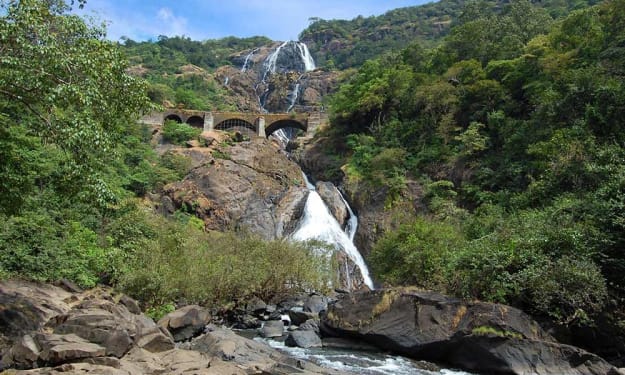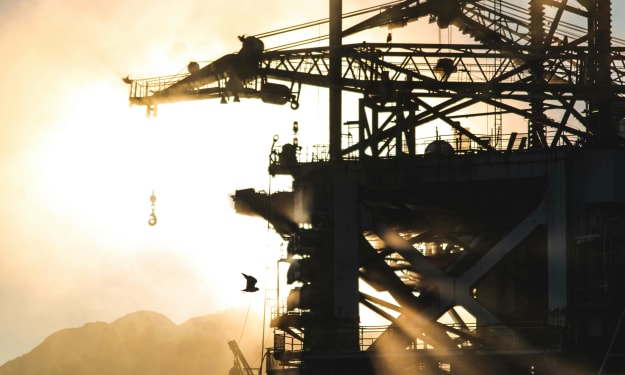Mineral resources
The wealth beneath our feet

Mineral Resources: The Wealth Beneath Our FeetMineral resources have played a pivotal role in shaping human civilization for millennia. These naturally occurring substances, found beneath the Earth's surface, have been essential for the development of industries, infrastructure, and technology. From the earliest flint tools to the cutting-edge electronics of today, mineral resources have been the bedrock upon which human progress has been built.Mineral resources encompass a vast array of substances, each with its unique properties and applications. These resources are broadly categorized into metallic and non-metallic minerals, both of which serve diverse purposes in our modern world.One of the most significant categories of mineral resources is metallic minerals. These include iron, copper, aluminum, and gold, among others. Iron, for example, is the backbone of the construction industry, forming the basis of steel production. Copper is indispensable in electrical wiring and electronics. Gold, with its unique properties of conductivity and corrosion resistance, finds use in various technological applications, from circuitry to dentistry.Non-metallic minerals, on the other hand, are equally vital. This category includes minerals like limestone, gypsum, and salt. Limestone, for instance, is a cornerstone in the production of cement, which is essential for the construction of buildings, roads, and infrastructure. Gypsum is used in plasterboard and drywall, a ubiquitous material in modern construction. Salt is not only a seasoning for our food but also has applications in industries like chemicals, textiles, and water treatment.Beyond their industrial significance, mineral resources are crucial for economic development and geopolitical power. Nations rich in mineral resources often possess a competitive advantage in global trade and manufacturing. For example, countries like Saudi Arabia and Russia, with abundant oil and gas reserves, exert significant influence in the global energy market. The Democratic Republic of the Congo, with its vast reserves of minerals like cobalt and coltan, plays a pivotal role in the production of electronics and batteries.However, the extraction and utilization of mineral resources come with environmental and social challenges. Mining operations can lead to habitat destruction, water pollution, and soil degradation. The extraction of certain minerals can also have adverse health effects on miners due to exposure to hazardous substances. Moreover, mineral resources are not evenly distributed globally, leading to economic disparities and, in some cases, conflict over resource-rich regions.To address these challenges, sustainable mining practices and responsible resource management are essential. Minimizing the environmental footprint of mining operations through technologies like remote sensing and automation can mitigate some of the ecological impacts. Additionally, strict regulations and ethical sourcing initiatives aim to ensure that mineral extraction respects human rights and protects local communities.In recent years, the concept of the circular economy has gained prominence, emphasizing the recycling and reuse of materials, including minerals. Recycling reduces the need for virgin resources, lessening the environmental impact of mining and extraction. Furthermore, advances in material science and technology have led to the development of alternatives to traditional mineral resources. For instance, researchers are exploring the use of graphene and carbon nanotubes as alternatives to traditional metals in various applications.Looking ahead, the demand for mineral resources is expected to continue growing as the global population increases and technological innovations advance. This presents both opportunities and challenges. Meeting the demand for minerals while minimizing environmental and social impacts requires a concerted effort from governments, industries, and consumers.In conclusion, mineral resources are the hidden wealth beneath our feet, driving progress, economic development, and technological innovation. These resources, whether metallic or non-metallic, are essential for various industries and play a significant role in shaping our world. However, responsible management and sustainable practices are crucial to ensure that the benefits of mineral resources are realized without compromising the environment and human well-being. As we move forward, the responsible utilization of mineral resources will be a key factor in building a sustainable and prosperous future for all.
About the Creator
Enjoyed the story? Support the Creator.
Subscribe for free to receive all their stories in your feed. You could also pledge your support or give them a one-off tip, letting them know you appreciate their work.





Comments
There are no comments for this story
Be the first to respond and start the conversation.